#starvation wages
Explore tagged Tumblr posts
Photo
"All labor has dignity. You are reminding the nation, that it is a CRIME for people to live in this RICH nation, and receive starvation wages!"

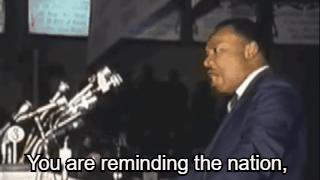
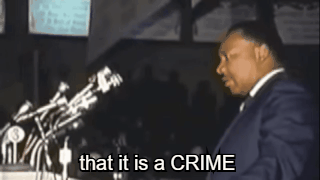


Martin Luther King speaking to striking workers in Memphis
#mlk#martin luther king jr#workers rights#worker's rights#labour#labour rights#labor rights#wealth inequality#starvation wages
62K notes
·
View notes
Text
Which of you middle-class gen x homeowners made a wish on the monkey's paw to be the owner of a million dollar home?
#not like this#monkeys paw#wish#housing#economics#wage slavery#starvation wages#unhoused#social justice#leftist#bad timeline
1 note
·
View note
Text
A Few Things For Us To Think About ( #1403 )
A Few Things For Us To Think About ( #1403 ) 1.) Please, if you are going to lie to me, just keep your mouth shut! 2.) If we choose to lie to someone we are telling them that they are not worthy in our eyes of telling them the truth! 3.) The Earth and the wind, they all belong to God, He always hears us! 4.) Never be stupid enough to ever quote a liar! 5.) Humans are to ignorant and to greedy…
View On WordPress
0 notes
Text
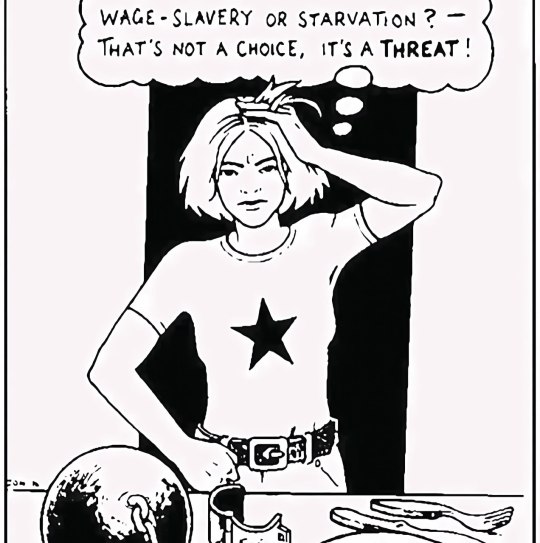
"Wage-slavery or starvation? That's not a choice, it's a threat!" (EN: English)
#Wage-slavery or starvation? That's not a choice#it's a threat!#comics#comic#cartoon#cartoons#memes#meme#class war#eat the rich#eat the fucking rich#antiwork#anti slavery#fuck work#anti capitalism#antifascist#antiauthoritarian#anti imperialism#anti israel#ausgov#politas#auspol#tasgov#taspol#australia#fuck neoliberals#neoliberal capitalism#anthony albanese#albanese government#antinazi
15 notes
·
View notes
Text
One good thing about the sudden 10 degree drop in temperture from tuesday to today: it makes me run faster....out of desperation.
#Journal shit#I still seem to be on the constant verge of tears#After having it confirmed by my boss unknowningly using MY work as an example of sculpt quality work to aim for#And trying to tell me that THIS is the kind of work they need#As if i didnt know how to sculpt like that as if i didnt DO the damn thing starting from a fucking cube#I can do the work they want CLEARLY but they will never give me sculpt work because#They think some outsource artist will be better and cheaper and faster because 3D artists in other countries are paid starvation wages#and work inhumane hours#I just want to sit and cry for a few days its ok
6 notes
·
View notes
Text
Kinda backwards how the working class can’t afford food but the one’s who don’t work can.
0 notes
Text
the thing is, working 9-5, 5 days a week, four weeks a month (average ish), at 15 and hour, still is only around 2400 a month, which isn't hardly much of anything if you're paying rent, utilities, Internet, a car payment, possibly insurance, & that's not even getting food for yourself.
The average person should be making at least 30 an hour, that would be livable. 15 an hour is only just *slightly* above starvation wages.
This country is absolutely ridiculous.
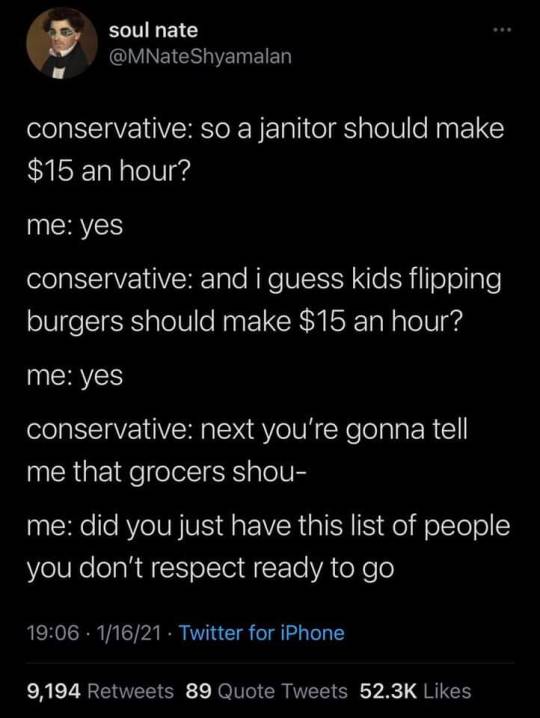
61K notes
·
View notes
Text
As the Napoleonic wars and poor harvests brought starvation, and the power looms undercut craftsmen's wages, violent mass protests broke out.
"Normal Women: 900 Years of Making History" - Philippa Gregory
#book quote#normal women#philippa gregory#nonfiction#napoleonic wars#poor harvests#starvation#famine#power loom#mechanization#undercut#craftsmen#wages#violence#protests
0 notes
Note
Maybe Bas likes em chunky too? She is quite greedy, and now there's more Focci to love...
oh yeah lmao that's definitely the case
0 notes
Text
Help for Venezuela. REBLOG PLEASE.





Help me spread the word about what is happening in my country.I don't want to cry anymore thinking about what is going to happen to my family, or my friends. Many in my generation have committed suicide due to the desperation of the current crisis, others have left their university careers to go to work at an early age for a starvation wage. Please, I just want to stop suffering, I don't want to cry anymore, I just want a normal adolescence for all young people. My people need FREEDOM.
#gojo satoru x reader#simon ghost riley x reader#jason todd x reader#choso x reader#itachi uchiha x reader#leon kennedy x reader#sukuna x reader#toji x reader#itadori x reader#jujutsu kaisen x reader#jujutsu kaisen#dc universe#naruto#uchiha sasuke#naruto shippuden#gege akutami#gojo satoru#call of duty#venezuela#kpop#bts#blackpink
5K notes
·
View notes
Text
They want kids who are living at home who don't need to be paid a living wage.
They can't get adults to work at the starvation wages that businesses don't NEED to have so low. It just maximizes their profits. They could make a profit offering a livable wage. Housing and food are so expensive now because capitalists have pushed everything up out of greed.
The capitalist system wants to use the kids before they become adults.
Any business model that NEEDS child labor or to pay starvation wages to survive (as they will lie is necessary) does NOT deserve to exist.
"When you want to take their books away, they're children. When you want them to work, they're adults."
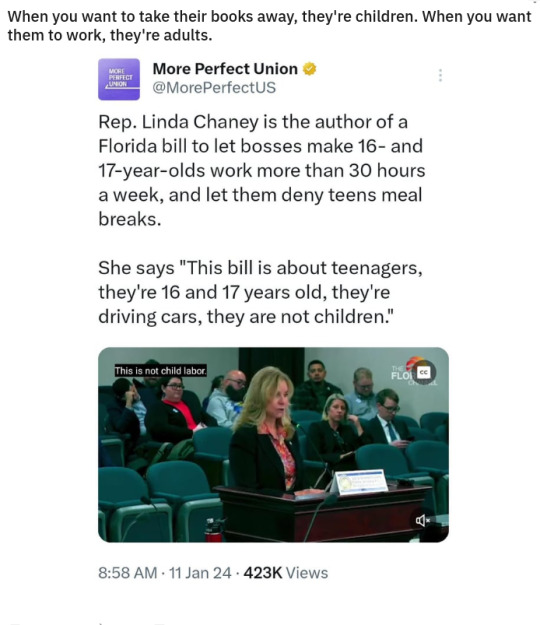
"When you want to take their books away, they're children. When you want them to work, they're adults." -/u/xFurorCelticax/ on /r/LateStageCapitalismhttps://www.reddit.com/r/LateStageCapitalism/comments/194g10g/when_you_want_to_take_their_books_away_theyre/
36K notes
·
View notes
Text
Hello Comrades
Here’s the deal: Child Care Counts, a program which funds early education centers to 1) pay their employees a livable wage 2) pays for safety and quality of life improvements 3) keeps tuition low (without CCC tuition could rise as much as 40%) is being struck down.
The Wisconsin Joint committee on Finance has voted to cut the program by 50% next year and to not fund the program after February 2024 all together.
The disgusting neglect of early education and the professionals therein is an abomination and directly impacts the next generation.
Please, help us. Raise your voices. This is a dangerous precedent to set and a continuous violation of children’s rights to care and education.
The survey below can be filled out by anyone, pass it along if you can. Tell them this is bullshit. Tell them to value their youth. Tell them to value their teachers.
#signal boost#help#speak up#childcare#early education#politics#wisconsin#current events#value teachers#value children#living wage#starvation wage
0 notes
Text
Prime’s enshittified advertising
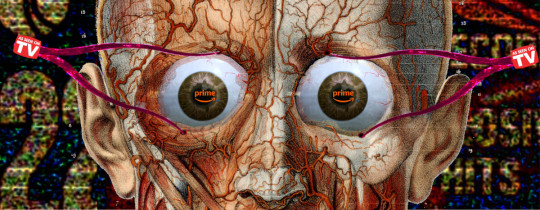
Prime's gonna add more ads. They brought in ads in January, and people didn't cancel their Prime subscriptions, so Amazon figures that they can make Prime even worse and make more money:
https://arstechnica.com/gadgets/2024/10/amazon-prime-video-is-getting-more-ads-next-year/
The cruelty isn't the point. Money is the point. Every ad that Amazon shows you shifts value away from you – your time, your attention – to the company's shareholders.
That's the crux of enshittification. Companies don't enshittify – making their once-useful products monotonically worse – because it amuses them to erode the quality of their offerings. They enshittify them because their products are zero-sum: the things that make them valuable to you (watching videos without ads) make things less valuable to them (because they can't monetize your attention).
This isn't new. The internet has always been dominated by intermediaries – platforms – because there are lots more people who want to use the internet than are capable of building the internet. There's more people who want to write blogs than can make a blogging app. There's more people who want to play and listen to music than can host a music streaming service. There's more people who want to write and read ebooks than want to operate an ebook store or sell an ebooks reader.
Despite all the early internet rhetoric about the glories of disintermediation, intermediaries are good, actually:
https://pluralistic.net/2022/06/12/direct-the-problem-of-middlemen/
The problem isn't with intermediaries per se. The problem arises when intermediaries grow so powerful that they usurp the relationship between the parties they connect. The problem with Uber isn't the use of mobile phones to tell taxis that you're standing on a street somewhere and would like a cab, please. The problem is rampant worker misclassification, regulatory arbitrage, starvation wages, and price-gouging:
https://pluralistic.net/2024/02/29/geometry-hates-uber/#toronto-the-gullible
There's no problem with publishers, distributors, retailers, printers, and all the other parts of the bookselling ecosystem. While there are a few, rare authors who are capable of performing all of these functions – basically gnawing their books out of whole logs with their teeth – most writers can't, and even the ones who can, don't want to:
https://pluralistic.net/2024/02/19/crad-kilodney-was-an-outlier/#intermediation
When early internet boosters spoke of disintermediation, what they mostly meant was that it would be harder for intermediaries to capture those relationships – between sellers and buyers, creators and audiences, workers and customers. As Rebecca Giblin and I wrote in our 2022 book Chokepoint Capitalism, intermediaries in every sector rely on chokepoints, narrows where they can erect tollbooths:
https://chokepointcapitalism.com/
When chokepoints exist, they multiply up and down the supply chain. In the golden age of physical, recorded music, you had several chokepoints that reinforced one another. Limited radio airwaves gave radio stations power over record labels, who had to secretly, illegally bid for prime airspace ("payola"). Retail consolidation – the growth of big record chains – drove consolidation in the distributors who sold to the chains, and the more concentrated distributors became, the more they could squeeze retailers, which drove even more consolidation in record stores. The bigger a label was, the more power it had to shove back against the muscle of the stores and the distributors (and the pressing plants, etc). Consolidation in labels also drove consolidation in talent agencies, whose large client rosters gave them power to resist the squeeze from the labels. Consolidation in venues drives consolidation in ticketing and promotion – and vice-versa.
But there's two parties to this supply chain who can't consolidate: musicians and their fans. With limits on "sectoral bargaining" (where unions can represent workers against all the companies in a sector), musicians' unions were limited in their power against key parts of the supply chain, so the creative workers who made the music were easy pickings for labels, talent reps, promoters, ticketers, venues, retailers, etc. Music fans are diffused and dispersed, and organized fan clubs were usually run by the labels, who weren't about to allow those clubs to be used against the labels.
This is a perfect case-study in the problems of powerful intermediaries, who move from facilitator to parasite, paying workers less while degrading their products, and then charge customers more for those enshittified products.
The excitement about "disintermediation" wasn't so much about eliminating intermediaries as it was about disciplining them. If there were lots of ways to market a product or service, sell it, collect payment for it, and deliver it, then the natural inclination of intermediaries to turn predator would be curbed by the difficulty of corralling their prey into chokepoints.
Now that we're a quarter century on from the Napster Wars, we can see how that worked out. Decades of failure to enforce antitrust law allowed a few companies to effectively capture the internet, buying out rivals who were willing to sell, and bankrupting those who wouldn't with illegal tactics like predatory pricing (think of Uber losing $31 billion by subsidizing $0.41 out of every dollar they charged for taxi rides for more than a decade).
The market power that platforms gained through consolidation translated into political power. When a few companies dominate a sector, they're able to come to agreement on common strategies for dealing with their regulators, and they've got plenty of excess profits to spend on those strategies. First and foremost, platforms used their power to get more power, lobbying for even less antitrust enforcement. Additionally, platforms mobilized gigantic sums to secure the right to screw customers (for example, by making binding arbitration clauses in terms of service enforceable) and workers (think of the $225m Uber and Lyft spent on California's Prop 22, which formalized their worker misclassification swindle).
So big platforms were able to insulate themselves from the risk of competition ("five giant websites, filled with screenshots of the other four" – Tom Eastman), and from regulation. They were also able to expand and mobilize IP law to prevent anyone from breaking their chokepoints or undoing the abuses that these enabled. This is a good place to get specific about how Prime Video works.
There's two ways to get Prime videos: over an app, or in your browser. Both of these streams are encrypted, and that's really important here, because of a law – Section 1201 of the 1998 Digital Millennium Copyright Act – which makes it really illegal to break this kind of encryption (commonly called "Digital Rights Management" or "DRM"). Practically speaking, that means that if a company encrypts its videos, no one is allowed to do anything to those videos, even things that are legal, without the company's permission, because doing all those legal things requires breaking the DRM, and breaking the DRM is a felony (five years in prison, $500k fine, for a first offense).
Copyright law actually gives subscribers to services like Prime a lot of rights, and it empowers businesses that offer tools to exercise those rights. Back in 1976, Sony rolled out the Betamax, the first major home video recorder. After an eight-year court battle, the Supreme Court weighed in on VCRs and ruled that it was legal for all of us to record videos at home, both to watch them later, and to build a library of our favorite shows. They also ruled that it was legal for Sony – and by that time, every other electronics company – to make VHS systems, even if those systems could be used in ways that violated copyright because they were "capable of sustaining a substantial non-infringing use" (letting you tape shows off your TV).
Now, this was more than a decade before the DMCA – and its prohibition on breaking DRM – passed, but even after the DMCA came into effect, there was a lot of media that didn't have DRM, so a new generation of tech companies were able to make tools that were "capable of sustaining a substantial non-infringing use" and that didn't have to break any DRM to do it.
Think of the Ipod and Itunes, which, together, were sold as a way to rip CDs (which weren't encrypted), and play them back from both your desktop computer and a wildly successful pocket-sized portable device. Itunes even let you stream from one computer to another. The record industry hated this, but they couldn't do anything about it, thanks to the Supreme Court's Betamax ruling.
Indeed, they eventually swallowed their bile and started selling their products through the Itunes Music Store. These tracks had DRM and were thus permanently locked to Apple's ecosystem, and Apple immediately used that power to squeeze the labels, who decided they didn't like DRM after all, and licensed all those same tracks to Amazon's DRM-free MP3 store, whose slogan was "DRM: Don't Restrict Me":
https://memex.craphound.com/2008/02/01/amazons-anti-drm-tee/
Apple played a funny double role here. In marketing Itunes/Ipods ("Rip, Mix, Burn"), they were the world's biggest cheerleaders for all the things you were allowed to do with copyrighted works, even when the copyright holder objected. But with the Itunes Music Store and its mandatory DRM, the company was also one of the world's biggest cheerleaders for wrapping copyrighted works in a thin skin of IP that would allow copyright holders to shut down products like the Ipod and Itunes.
Microsoft, predictably enough, focused on the "lock everything to our platform" strategy. Then-CEO Steve Ballmer went on record calling every Ipod owner a "thief" and arguing that every record company should wrap music in Microsoft's Zune DRM, which would allow them to restrict anything they didn't like, even if copyright allowed it (and would also give Microsoft the same abusive leverage over labels that they famously exercised over Windows software companies):
https://web.archive.org/web/20050113051129/http://management.silicon.com/itpro/0,39024675,39124642,00.htm
In the end, Amazon's approach won. Apple dropped DRM, and Microsoft retired the Zune and shut down its DRM servers, screwing anyone who'd ever bought a Zune track by rendering that music permanently unplayable.
Around the same time as all this was going on, another company was making history by making uses of copyrighted works that the law allowed, but which the copyright holders hated. That company was Tivo, who products did for personal video recorders (PVRs) what Apple's Ipod did for digital portable music players. With a Tivo, you could record any show over cable (which was too expensive and complicated to encrypt) and terrestrial broadcast (which is illegal to encrypt, since those are the public's airwaves, on loan to the TV stations).
That meant that you could record any show, and keep it forever. What's more, you could very easily skip through ads (and rival players quickly emerged that did automatic ad-skipping). All of this was legal, but of course the cable companies and broadcasters hated it. Like Ballmer, TV execs called Tivo owners "thieves."
But Tivo didn't usher in the ad-supported TV apocalypse that furious, spittle-flecked industry reps insisted it would. Rather, it disciplined the TV and cable operators. Tivo owners actually sought out ads that were funny and well-made enough to go viral. Meanwhile, every time the industry decided to increase the amount of advertising in a show, they also increased the likelihood that their viewers would seek out a Tivo, or worse, one of those auto-ad-skipping PVRs.
Given all the stink that TV execs raised over PVRs, you'd think that these represented a novel threat. But in fact, the TV industry's appetite for ads had been disciplined by viewers' access to new technology since 1956, when the first TV remotes appeared on the market (executives declared that anyone who changed the channel during an ad-break was a thief). Then came the mute button. Then the wireless remote. Meanwhile, a common VCR use-case – raised in the Supreme Court case – was fast-forwarding ads.
At each stage, TV adapted. Ads in TV shows represented a kind of offer: "Will you watch this many of these ads in return for a free TV show?" And the remote, the mute button, the wireless remote, the VCR, the PVR, and the ad-skipping PVR all represented a counter-offer. As economists would put it, the ability of viewers to make these counteroffers "shifted the equilibrium." If viewers had no defensive technology, they might tolerate more ads, but once they were able to enforce their preferences with technology, the industry couldn't enshittify its product to the liminal cusp of "so many ads that the viewer is right on the brink of turning off the TV (but not quite)."
This is the same equilibrium-shifting dynamic that we see on the open web, where more than 50% of users have installed an ad-blocker. The industry says, "Will you allow this many 'sign up to our mailing list' interrupters, pop ups, pop unders, autoplaying videos and other stuff that users hate but shareholders benefit from" and the ad-blocker makes a counteroffer: "How about 'nah?'":
https://www.eff.org/deeplinks/2019/07/adblocking-how-about-nah
TV remotes, PVRs and ad-blockers are all examples of "adversarial interoperability" – a new product that plugs into an existing one, extending or modifying its functions without permission from (or even over the objections of) the original manufacturer:
https://www.eff.org/deeplinks/2019/10/adversarial-interoperability
Adversarial interop creates a powerful disciplining force on platform owners. Once a user grows so frustrated with a product's enshittification that they research, seek out, acquire and learn to use an adversarial interop tool, it's really game over. The printer owner who figures out where to get third-party ink is gone forever. Every time a company like HP raises its prices, they have to account for the number of customers who will finally figure out how to use generic ink and never, ever send another cent to HP.
This is where DMCA 1201 comes into play. Once a product is skinned with DRM, its manufacturers gain the right to prevent you from doing legal things, and can use the public's courts and law-enforcement apparatus to punish you for trying. Take HP: as soon as they started adding DRM to their cartridges, they gained the legal power to shut down companies that cloned, refilled or remanufactured their cartridges, and started raising the price of ink – which today sits at more than $10,000/gallon:
https://pluralistic.net/2024/09/30/life-finds-a-way/#ink-stained-wretches
Using third party ink in your printer isn't illegal (it's your printer, right?). But making third party ink for your printer becomes illegal once you have to break DRM to do so, and so HP gets to transform tinted water into literally the most expensive fluid on Earth. The ink you use to print your kid's homework costs more than vintage Veuve Cliquot or sperm from a Kentucky Derby-winning thoroughbred.
Adversarial interoperability is a powerful tool for shifting the equilibrium between producers, intermediaries and buyers. DRM is an even more powerful way of wrenching that equilibrium back towards the intermediary, reducing the share that buyers and sellers are able to eke out of the transaction.
Prime Video, of course, is delivered via an app, which means it has DRM. That means that subscribers don't get to exercise the rights afforded to them by copyright – only the rights that Amazon permits them to have. There's no Tivo for Prime, because it would have to break the DRM to record the shows you stream from Prime. That allows Prime to pull all kinds of shady shit. For example, every year around this time, Amazon pulls popular Christmas movies from its free-to-watch tier and moves them into pay-per-view, only restoring them in the spring:
https://www.reddit.com/r/vudu/comments/1bpzanx/looks_like_amazon_removed_the_free_titles_from/
And of course, Prime sticks ads in its videos. You can't skip these ads – not because it's technically challenging to make a 30-second advance button for a video stream, and doing so wouldn't violate anyone's copyright – but because Amazon doesn't permit you to do so, and the fact that the video is wrapped in DRM makes it a felony to even try.
This means that Amazon gets to seek a different equilibrium than TV companies have had to accept since 1956 and the invention of the TV remote. Amazon doesn't have to limit the quantity, volume, and invasiveness of its ads to "less the amount that would drive our subscribers to install and use an ad-skipping plugin." Instead, they can shoot for the much more lucrative equilibrium of "so obnoxious that the viewer is almost ready to cancel their subscription (but not quite)."
That's pretty much exactly how Kelly Day, the Amazon exec in charge of Prime Video, put it to the Financial Times: they're increasing the number of ads because "we haven’t really seen a groundswell of people churning out or cancelling":
https://www.ft.com/content/f8112991-820c-4e09-bcf4-23b5e0f190a5
At this point, attentive readers might be asking themselves, "Doesn't Amazon have to worry about Prime viewers who watch in their browsers?" After all browsers are built on open standards, and anyone can make one, so there should be browsers that can auto-skip Prime ads, right?
Wrong, alas. Back in 2017, the W3C – the organization that makes the most important browser standards – caved to pressure from the entertainment industry and the largest browser companies and created "Encrypted Media Extensions" (EME), a "standard" for video DRM that blocks all adversarial interoperability:
https://www.eff.org/deeplinks/2017/09/open-letter-w3c-director-ceo-team-and-membership
This had the almost immediate effect of making it impossible to create an independent browser without licensing proprietary tech from Google – now a convicted monopolist! – who won't give you a license if you implement recording, ad-skipping, or any other legal (but dispreferred) feature:
https://blog.samuelmaddock.com/posts/the-end-of-indie-web-browsers/
This means that for Amazon, there's no way to shift value away from the platform to you. The company has locked you in, and has locked out anyone who might offer you a better deal. Companies that know you are technologically defenseless are endlessly inventive in finding ways to make things worse for you to make things better for them. Take Youtube, another DRM-video-serving platform that has jacked up the number of ads you have to sit through in order to watch a video – even as they slash payments to performers. They've got a new move: they're gonna start showing you ads while your video is paused:
https://www.usatoday.com/story/money/2024/09/20/youtube-pause-ads-rollout/75306204007/
That is the kind of fuckery you only come up with when your victory condition is "a service that's almost so bad our customers quit (but not quite)."
In Amazon's case, the math is even worse. After all, Youtube may have near-total market dominance over a certain segment of the video market, but Prime Video is bundled with Prime Delivery, which the vast majority of US households subscribe to. You have to give up a lot to cancel your Prime subscription – especially since Amazon's predatory pricing devastated the rest of the retail sector:
https://pluralistic.net/2022/11/28/enshittification/#relentless-payola
Amazon's founding principle was "customer obsession." Ex-Amazoners tell me that this was more than an empty platitude: arguments over product design were won or lost based on whether they could satisfy the "customer obsession" litmus test. Now, everyone falls short of their ideals, but sticking to your ideals isn't merely a matter of internal discipline, of willpower. Living up to your ideals is a matter of external discipline, too. When Amazon no longer had to contend with competitors or regulators, when it was able to use DRM to control its customers and use the law to prevent them from using its products in legal ways, it lost those external sources of discipline.
Amazon suppliers have long complained of the company's high-handed treatment of the vendors who supplied it with goods. Its workers have complained bitterly and loudly about the dangerous and oppressive conditions in its warehouses and delivery vans. But Amazon's customers have consistently given Amazon high marks on quality and trustworthiness.
The reason Amazon treated its workers and suppliers badly and its customers well wasn't that it liked customers and hated workers and suppliers. Amazon was engaged in a cold-blooded calculus: it understood that treating customers well would give it control over those customers, and that this would translate market power to retain suppliers even as it ripped them off and screwed them over.
But now, Amazon has clearly concluded that it no longer needs to keep customers happy in order to retain them. Instead, it's shooting for "keeping customers so angry that they're almost ready to take their business elsewhere (but not quite)." You see this in the steady decline of Amazon product search, which preferences the products that pay the biggest bribes for search placement over the best matches:
https://pluralistic.net/2023/11/06/attention-rents/#consumer-welfare-queens
And you see it in the steady enshittification of Prime Video. Amazon's character never changed. The company always had a predatory side. But now that monopoly and IP law have insulated it from consequences for its actions, there's no longer any reason to keep the predator in check.

Tor Books as just published two new, free LITTLE BROTHER stories: VIGILANT, about creepy surveillance in distance education; and SPILL, about oil pipelines and indigenous landback.


If you'd like an essay-formatted version of this post to read or share, here's a link to it on pluralistic.net, my surveillance-free, ad-free, tracker-free blog:
https://pluralistic.net/2024/10/03/mother-may-i/#minmax
768 notes
·
View notes
Text

The rich get richer while the rest of us starve. Why can't we have an economy that works for everyone?
#The rich get richer while the rest of us starve. Why can't we have an economy that works for everyone?#class war#poverty#homeless#starvation#famine#ausgov#politas#auspol#tasgov#taspol#australia#fuck neoliberals#neoliberal capitalism#anthony albanese#albanese government#eat the rich#eat the fucking rich#antiwalmart#anti capitalism#antiwork#anti slavery#wage slavery#slave wages#slavery#chattel slavery#fuck work#employment#employees#employers
27 notes
·
View notes
Text
People say weight loss is for sure possible...but no one agrees on how to do it.
Dieting works...but there's now an "ob*sity epidemic" despite people lining the pockets of weight loss corporations more than ever.
Weight loss products work...but weight loss corporations are making the Exact. Same. Claims. about their products that they did in 1910 with the products that were sold and then discontinued over a century ago.
Humans are all meant to be thin...but there are families of fat people who stay fat no matter how much "willpower" they muster and have fat ancestors going back generations.
It's about health and not looks...but people who are losing weight due to smoking, cancer, illness, mental disorders, and other health conditions are praised for their weight loss and told to keep going.
Fat people aren't oppressed...but fat people have no positive representation, no proper access to clothing, face a wage gap, endure deadly medical neglect and abuse, have their deaths by police brutality excused with their fatness, and countless other aspects of oppression that they deal with every single day.
Fat people are all fat because they overeat...but you can point to any fat person on the sidewalk and there's an extreme likelihood that they're on their 30th diet attempt in the past 10 years while there's thin people who eat whatever they want, however much they want, and don't exercise yet never gain a single pound.
Fat people are privileged because they gorge on unnecessary food...but fat people are overwhelmingly living in poverty, are not paid the same amount of money for the same work as their thin peers, are not chosen for promotions, are turned away from jobs that an employer wants more than a "pretty face" for, are at major risk of workplace harassment, and endure oppression even beyond just that.
Fat people aren't treated badly...but people use the word "fat" as a metaphor and synonym for "ugly," "unlovable," and "unworthy," while at the same time believing "fat," the most basic term for a specific body type, is a dirty, taboo insult you should never allow to leave your lips.
Professionals agree that fatness is inherently bad...but almost any weight-related research study that people, especially weight loss corporations, use to justify demonizing fat people has the worst methodology imaginable with validity errors and logical fallacies galore as well as conflicts of interest due to how many of these studies just happen to be funded by the corporations that make millions and billions of dollars off of the demonization these studies promote.
All health conditions a fat person has are caused by their fatness...but there is not a single health condition that only fat people obtain, many fat people developed the health condition in question when they were thin or thinner, weight gain is often a symptom of said health conditions, fat people are not given the same amount or quality of healthcare as thin people, and repeated starvation attempts (also known as "yo-yo dieting") have been shown to worsen a person's health.
Fat people can't have eating disorders...but fat people are the group encouraged to partake in disordered eating by this fatphobic world the most and then are not given any support to recover.
Thin privilege doesn't exist...but thin people who see the way fat people are treated in society do their absolute damndest and take whatever drastic measures they have to in order to prevent themselves from ever becoming one of "Them."
Fit and fat are mutually exclusive...but there are fat athletes as far up as even the Olympics, and sports are intentionally made inaccessible to fat people to the point of fat children even being turned away when trying to join a sports team.
Fat people are ugly...but all we grow up ever seeing in media are thin, conventionally attractive people painted with layers of makeup next to fat characters who were intentionally designed with an ill-fitting outfit, matted hair, and all other traits that fit the "ugly" stereotype that the character designer could manage to slap onto a single person.
Fat people are big, bad bullies...but studies show that weight is the number one excuse that children use to bully their peers, outcompeting a multitude of other oppressed identities considered.
Fat women are just men and vice versa...but sometimes they're androgynous, and sometimes they're basically nonbinary, and sometimes they're just things, and sometimes they're nothing at all depending on what labels a fatphobe decides will hurt a fat person most that day.
Fat people are subhuman...but fat people deserve the same love, respect, compassion, and support that all people are born inherently deserving.
Fatphobia isn't real, but—
-Mod Worthy
4K notes
·
View notes